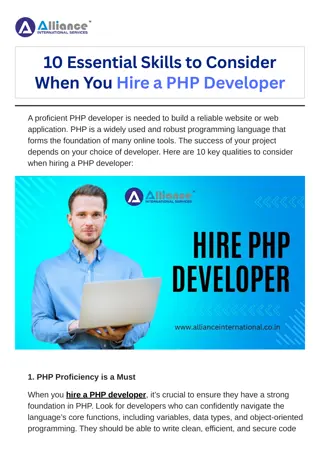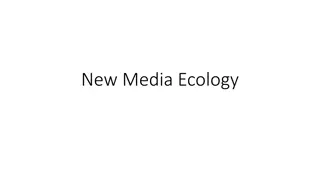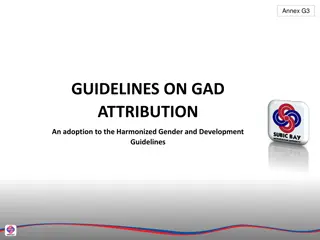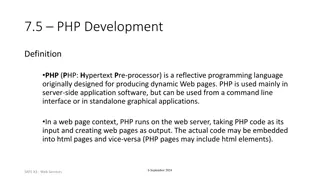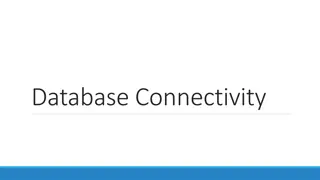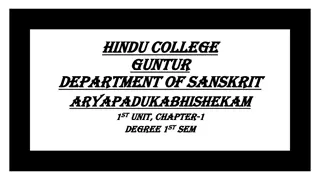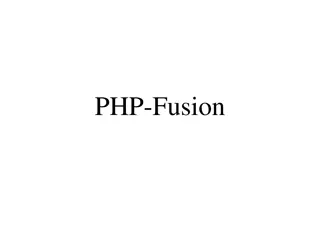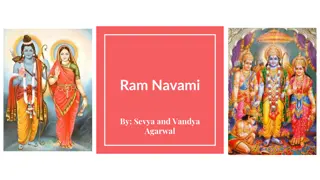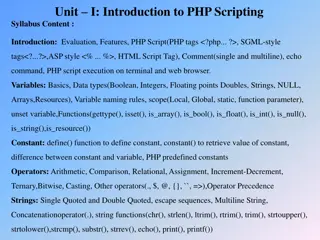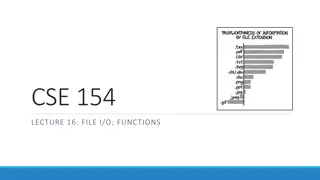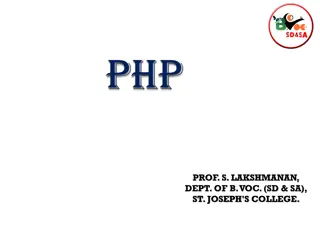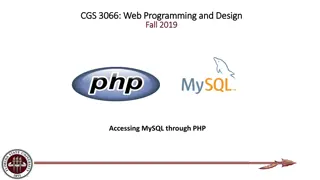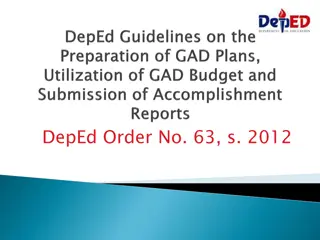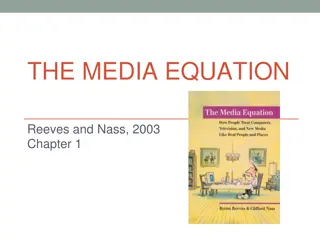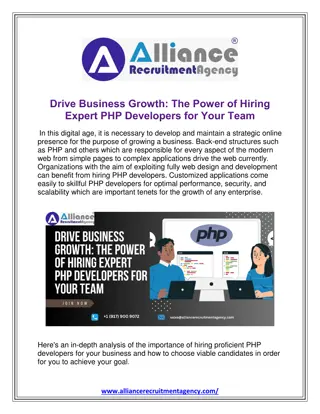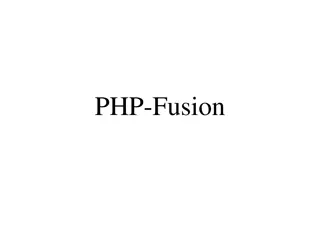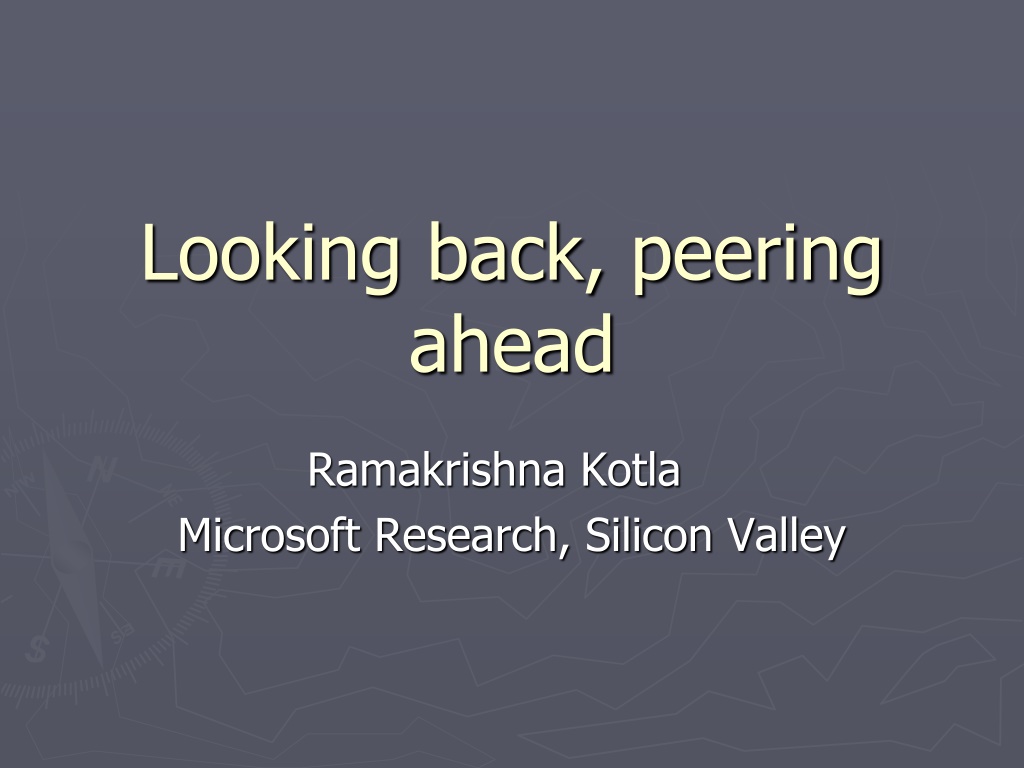
Ramakrishna Kotla's Reflections on Research and Career Choices
Ramakrishna Kotla, a researcher at Microsoft Research in Silicon Valley, shares his journey from undergraduate at IIT Kharagpur to a PhD student at UT Austin. He discusses why he chose not to pursue a PhD after undergrad, the importance of gaining wisdom during a PhD, and the secret sauce to success according to Siddhartha by Hermann Hesse. Kotla also explains his decision to work in research labs and the keys to advancing in the field.
Download Presentation

Please find below an Image/Link to download the presentation.
The content on the website is provided AS IS for your information and personal use only. It may not be sold, licensed, or shared on other websites without obtaining consent from the author. Download presentation by click this link. If you encounter any issues during the download, it is possible that the publisher has removed the file from their server.
E N D
Presentation Transcript
Looking back, peering ahead Ramakrishna Kotla Microsoft Research, Silicon Valley
To learn the road ahead, ask those who are coming back 1994-1998: Undergraduate (IIT, Kharagpur) 1998-2001: R&D Engineer 2008: Researcher 2001-2007: PhD student (UT, Austin)
Why didnt I do PhD after undergrad ? Enjoyed building systems Writing papers was not appealing Not sure about the area: Vision, systems, Project: Character recognition system Interested in computer architecture, OS Money: Golden internet days
Why did I do PhD later? R&D Engineer: More of D than R Mostly bringing yesterday s technology to reality PhD is (almost) a requirement for researcher To learn and advance the state of the art End of golden days: Internet bubble burst
What did I learn during my PhD? Knowledge: Become an expert in your area Research agenda, writing papers, giving talks How to become a better researcher? Wisdom: Lessons for life PhD is an approximate snapshot of your life How to become a better human being?
What is the secret sauce? I can think, I can wait, and I can fast Siddhartha, by Hermann Hesse (Nobel laureate) Think: Think through the things Wait: Be patient, your moment will come Fast: Work hard, do not lose focus
Why did I choose research labs? Make an impact Test your ideas on deployed systems Test your model with real workloads Build systems that people use Freedom to work on new ideas Do not worry about writing grants But support interns and visiting faculty
How did I get there? Interviewed: 4 research labs+3 semi-research Three things decide your fate What your work speaks about you? What others speak about you/your work? How you speak about your work?
Why did I choose MSR-SVC? Focus: Advance state of the art in distributed computing Take interesting ideas to products Philosophy: Collaborations over coffee Run like an academic department Approximately similar size Flat in structure
Why did I choose MSR-SVC ? Of course, talented colleagues Opportunity to work with smart interns Matches top schools Top award recipients in the field Best paper awards in top conferences Publications (systems): 2 (out of 26) papers at OSDI 08, 4 (out of 32) papers at NSDI 09
What do I do now? Nothing much different Work on problems, build systems, write papers Interact with product groups Understand their problems Transfer ideas when possible Academic service Review papers, give talks, serve on PCs
Conclusion Successful PhD: Tenacity Think, work hard, wait Many of life's failures are people who did not realize how close they were to success when they gave up."--Thomas A. Edison Successful job search Good research, research style, communication skills
Questions? Acknowledgements Roy Levin Doug Terry
What do research labs seek? Creativity Curiosity Technical breadth Flexibility in area of work System building skills Passion Independence Perspective Clarity in communication Collaborative bent 17
Corporate vs. Academic Research Funding may depend on relevance to business Patents generally encouraged Publication is of varying importance Non-personnel resources are usually available as needed External collaborations affected by corporate IP strategy Typically no management responsibility initially Flat or hierarchical organization Teaching possible, but optional Consulting with product groups is part of the job Advancement based on impact (generally products) Funding based on agency criteria (generally broader) Patents optional Publication is mandatory (for tenure) Non-personnel resources are often constrained External collaborations minimally constrained May need to manage graduate students from the outset Generally flat organization Teaching generally mandatory Consulting with industry is optional, and often attractive Advancement based on professional standing 18


